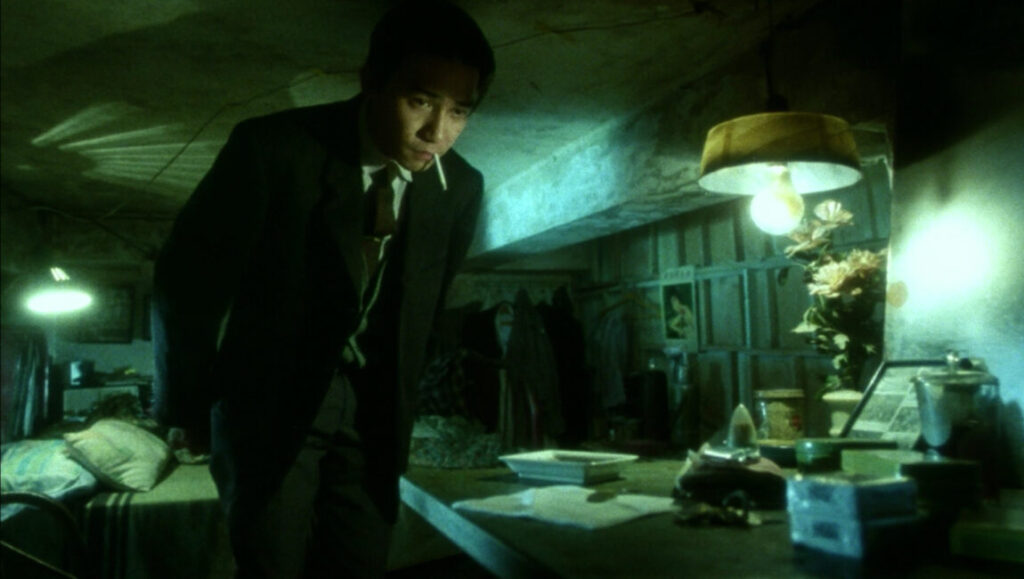Though Days of Being Wild is Wong Kar-Wai’s second feature, in many ways it’s a film of firsts. It’s his first collaboration with Christopher Doyle (arguably the most important director/cinematographer partnership in modern cinema), his first brush with building a stock company of performers, and perhaps most importantly, his first film to deal with a personal obsession: the mercurial, abstract quality of time itself. Critic Jonathan Rosenbaum has referred to Wong’s 2005 film 2046 as a “labyrinth of longing,” but really, that could be said of virtually any of his films, Days of Being Wild being no exception. Here, Wong uses a roundelay narrative to create virtually every possible iteration of romantic longing: requited and unrequited, consummated and unconsummated. And he carefully delineates each relationship through masterful mise-en-scène. Encounters between the playboy Yuddy (Leslie Cheung) and Leung Feng-ying (Carina Lau), a dancehall girl he takes up with, are frequently filmed as extreme profiles, filling opposite sides of the frame or juxtaposed over one another, jostling for dominance — a striking visual corollary for their volatile emotions. The demure Su Li-zhen (Maggie Cheng), who Yuddy dumps when she proposes marriage, is framed against walls, behind bars or blinds or other bric-a-brac, the architecture of frames within the frame constraining her.
Wong eschews establishing shots and exposition, leading to some lingering ellipses (it’s not entirely clear what era the film is taking place in until a character specifically mentions 1960), but the various couplings between characters establish a clear cause-and-effect trajectory.
Later Wong films became virtual Russian nesting dolls of flashbacks and cross-cutting between various temporal planes, but Days of Being Wild stays resolutely linear. Wong eschews establishing shots and exposition, leading to some lingering ellipses (it’s not entirely clear what era the film is taking place in until a character specifically mentions 1960), but the various couplings between characters establish a clear cause-and-effect trajectory. Then, a strange coda calls attention to a mysterious figure, not seen up until this point. He paces around his small apartment, dressing for an evening out; combs his hair, gathers packs of cigarettes, grabs a wad of cash and stuffs a deck of cards into his pocket. The general line is that this short scene was filmed as a kind of teaser for a never-made sequel, but there is another possibility. Correctly or not (probably not), the Internet Movie Database lists this mystery man, played by the great Chinese actor Tony Leung, as Chow Mo-wan, the same character Leung plays in both In the Mood for Love and 2046. It’s tantalizing to think that this character might be puncturing the narrative of Days of Being Wild for just a moment, suggesting, intentionally or not, that the action of In the Mood for Love is happening concurrently. Think of it as Wong’s universe of longing and regret closing in on itself, a kind of perpetual loop of remorseful romanticism.
Part of Kicking the Canon – The Film Canon.


Comments are closed.